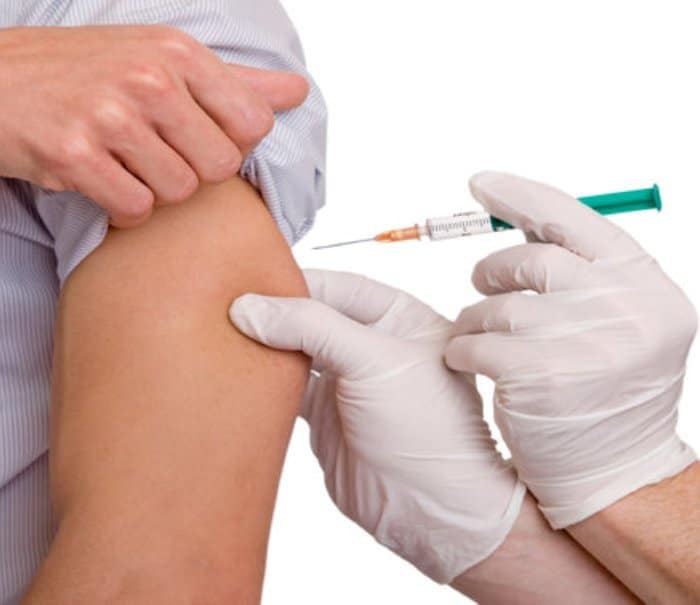Contents:
- Medical Video: Meningococcal Vaccine Benefits & Side Effects - First With Kids - Vermont Children's Hospital
- Overview of meningitis
- People who need to inject meningitis
- People who are not recommended for injecting meningitis
- Understand side effects after injecting meningitis
Medical Video: Meningococcal Vaccine Benefits & Side Effects - First With Kids - Vermont Children's Hospital
Injecting or meningitis vaccine is one way to prevent meningitis infection. Although this vaccine is not included in the mandatory immunization schedule, you can still get a meningitis vaccine in Indonesia. Find out who is recommended for injecting meningitis in this article.
Overview of meningitis
Meningitis is an infection of the membranes around the brain and spinal cord. This infection is most often caused by a virus, but in some cases it can also be caused by bacteria and fungi. Meningitis caused by viruses generally can heal without treatment. While meningitis caused by bacteria can generally develop into a serious condition that requires immediate antibiotic treatment to increase the chances of recovery.
Typical symptoms of this disease are high fever and chills, acute headaches, stiff neck, frequent fainting, sensitivity to light, nausea and vomiting, and seizures. The diagnosis of meningitis is difficult because the symptoms often appear suddenly and are similar to other diseases. There is no way to find out what type of meningitis you experience without consulting a doctor.
People who need to inject meningitis
Meningitis can be a threat to life quickly, and in many cases adolescents are at higher risk of getting this disease. The reason is from 1,000-2,600 people suffering from meningitis, a third are teenagers and young adults.
That is why health agencies throughout the world recommend meningitis vaccination for all who want to travel far to risky areas, especially teenagers and young adults. In certain situations, children and other adults can also be recommended to get this vaccine.
In general, some people are highly recommended for injecting meningitis, including:
- People who will travel or live in a country where meningitis is widespread, such as Saudi Arabia and parts of Africa. Therefore, the Indonesian government requires prospective Umrah and Hajj participants to receive the meningitis vaccine before leaving.
- Have damage to the spleen or no spleen.
- Having an immune system disorder, such as HIV.
- Has certain types of rare disorders (complement component deficiency).
- Currently taking Soliris medicine.
- Have experienced meningitis before.
- Work in laboratories that routinely intersect with bacteria Neisseria meningitidis.
People who are not recommended for injecting meningitis
Here are some people who are not recommended for injecting meningitis, including:
- Has a severe and life-threatening allergic reaction to the meningitis vaccine or to one of the other vaccine components.
- Being sick or having a weak immune system.
- Have experienced Guillain-Barre syndrome.
- Pregnant women can receive the meningitis vaccine, but it is only recommended for those who have certain immune problems or those who are at high risk of developing meningitis.
Understand side effects after injecting meningitis
Side effects of meningitis vaccine are actually the same as vaccinations in general, such as redness, bruising, itching, swelling, pain, or headache. These side effects are generally mild and can disappear without special care.
Serious side effects are rare. If it occurs, symptoms that often appear include high fever, weakness and lethargy, and behavioral changes. In addition, severe allergic reactions can also occur within minutes or hours after the vaccination is complete. Some signs of this allergic reaction include:
- Difficulty breathing
- Hoarseness or wheezing (breath sounds like whistling orbro)
- Fast heartbeat or heart palpitations
- Dizzy
- Nausea and vomiting
Some people may develop symptoms that are not mentioned above. However, if you experience some of the signs above, you should immediately go to the doctor to get the right treatment.












